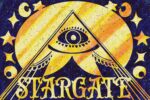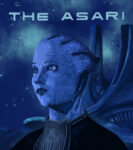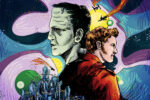The term slipstream was first coined around 1989 by researcher Richard Dorsett during a conversation about literary genres with his friend Bruce Sterling. Sterling, a successful science fiction author, had some difficulty categorizing some of his work. It wasn’t quite science fiction, wasn’t quite fantasy and wasn’t perfectly literary; the writing didn’t fit into any one genre. Dorsett came up with the term to describe Sterling’s work. It fit and quickly became a useful description for books and stories that seemed to slip from one genre to another. Not only does “slipstream” refer to genre-bending stories, but also stories that challenge mainstream genre conventions.
What Makes Slipstream Slipstream?
Since slipstream is a loose, fluid term, not everyone agrees on exactly what makes a story fall under the category. Although it’s considered its own genre in some areas, it’s usually referred to as a subgenre out of necessity. There are simply not enough of these books to warrant an entire section in a library. As such, these stories are categorized under genres such as science fiction or urban fantasy, and slipstream is attached to the description to let readers know that the story will subvert expectations and bleed over into other genres.
The term is also often used to describe a certain tone or feeling. These stories tend to have a specific, eerie tone, but rarely cross the line into pure horror. There are rarely any explanations for supernatural events and the air of mystery that flavors most slipstream stories.
Considering the word was coined to describe stories that blur the line between genres, it’s difficult to decide what is and isn’t slipstream. Some focus on the signature tone while others only consider stories that bend conventional genres as true slipstream. Right now, the only thing that has power to determine if a story falls under the category is general consensus.
Why Is Slipstream Popular?
Although slipstream was originally thought of as a subversion of mainstream stories, it has become more and more prevalent in the public consciousness. These stories weren’t quite avant-garde, but they were strange and not at the forefront of bookstores.
There still aren’t enough dedicated slipstream writers to justify an entire section in the library, but the genre has achieved a good amount of popularity. Audiences welcome the bending of genres and love to see them mixed around and switched up. The unique slipstream tone is also alluring and leaves readers wanting more.
Slipstream is also often more accessible to new audiences. Although there are several slipstream novels, the genre tends to attract more short story writers than novelists. Slipstream often relies on unexplained phenomena and a pervasive eerie tone, which is much more conducive for short stories than long-form fiction. Obviously, short stories read much faster than novels, and authors releasing story collections often post one of their stories online as a teaser. As such, there’s enough free slipstream content to attract new audiences who want a dose of weirdness in a short story.
Who Writes Slipstream?
One of the stars of slipstream is Kelly Link. In addition to writing excelling books and short stories, she was also a Pulitzer Prize finalist in 2016. Her short story collection “Pretty Monsters” is an excellent introduction to the strange, mysterious genre. The short stories dip into fantasy and science fiction, but all maintain firm literary roots. Link’s work is a great start for anyone who wants to try out this relatively new genre for the first time.
Ted Chiang is another author worth noting. Although most of his fiction is published as science fiction, much of his work defies common tropes and challenges readers to think and examine. His novella “Story of Your Life” is a great example of how science fiction can be blended with literary sensibilities to create something fresh and exciting.
Yet another slipstream author is Jeff VanderMeer. His book “Dead Astronauts” is a surreal exploration of science fiction and psychology in ways that can delight and confuse readers.
Conclusion
Slipstream is weird and wild and surprisingly refreshing. As stories are shared, it has become more mainstream and has attracted attention from readers all over the world. The way that these stories surpass expectations and offer strange and mysterious tones invite readers to revisit the genre again and again.
















